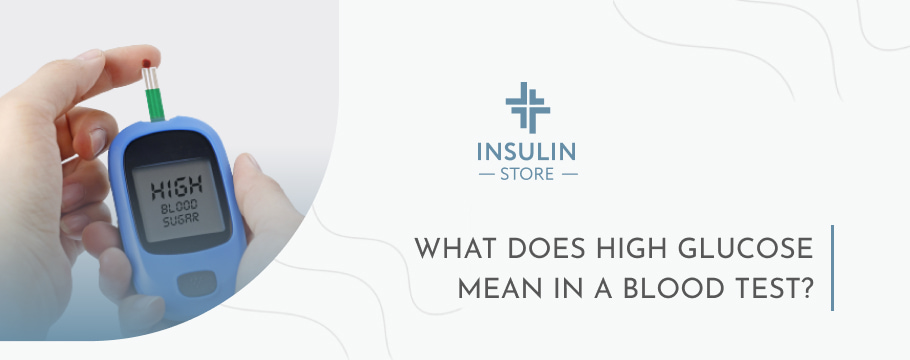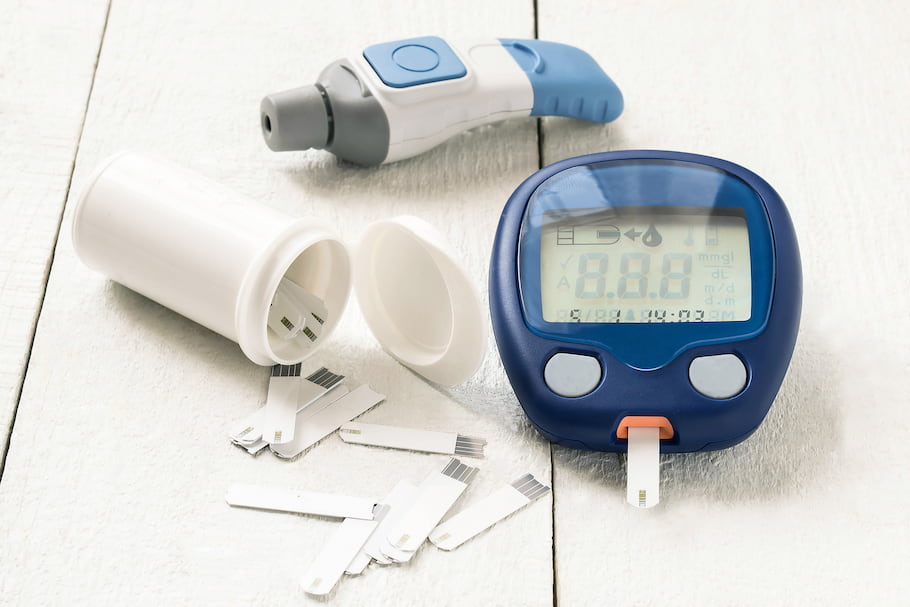
What Does High Glucose Mean in a Blood Test?
Glucose is fuel for our organism. Our body gets glucose from the food we consume, spitting carbohydrates. For absorbing glucose, the pancreas produces the insulin hormone, which regulates the level of glucose in the blood. Certain diseases, poor nutrition, stress, lack of sleep, and exercise may cause insufficient production of insulin and an increase in blood sugar level.
If it happens, it may have a drastic impact on the nervous, digestive, cardiovascular, and other systems. That is why it is crucial to monitor blood glucose levels as the diet and lifestyle of most modern people greatly increase the chances of diabetes development compared to our predecessorі.
So, what is a normal blood glucose level? How to prepare for a glucose tolerance test? And what does it mean when your blood sugar is high? These and many other equations we will answer in this article. Keep on reading!
Blood Glucose Level Standards
Of course, the numbers of the so-called “norm” are always relative and vary depending on individual factors such as age, gender, lifestyle, diet, medical conditions (pregnancy, for example), and so on. Thus, the normal glycemic level for a healthy adult person on an empty stomach varies from 3.3 to 5.5 mmol/l, and after meals – 5.6-6.6 mmol/l. If the second index is achieved during the empty stomach blood sugar measurement, it means that insulin sensitivity is violated.
If the index of measuring blood sugar on an empty stomach exceeds 6.7 mmol/l is an indicator of hyperglycemia (high blood sugar). Hyperglycemia may be a sign of other disorders:
- endocrine diseases;
- disorders of the liver and hypothalamus;
- development of inflammatory processes.
If the symptom is chronic, then it is likely that the patient has diabetes.
The number down 3.3 mmol/l, on the contrary, is a sign of hypoglycemia – low blood sugar, a medical condition that can lead to cramps, headaches, disorders of the pancreas, liver, kidneys, and adrenal glands.
Regular monitoring of sugar levels in the blood helps to detect and prevent further development of hyper- and hypoglycemia.
Methods of Blood Sugar Control
There exist a few ways to monitor blood glucose to prevent developing diabetes:
- self-control blood glucose test using a glucometer
- using a continuous glucose monitoring system
- research with professional continuous glucose monitoring
These are diabetes tests for people who have been already diagnosed with diabetes mellitus type 1 or type 2 or for patients who have risk factors of developing diabetes. Healthy people with no major health problems do not need such intense diabetes care.
However, the above-mentioned categories of insulin-dependent patients should be especially careful to maintain insulin and glucose within normal ranges.
How to Prepare for the Blood Glucose Test?
To get accurate blood glucose test results, you should follow simple recommendations. Otherwise, you will get unrealistic results and will have to repeat the test if you do not want to get the wrong diagnosis and inappropriate treatment correspondingly.
Can I drink water before the test?
Yes. You can drink water but exclude all other drinks, especially the ones containing alcohol or sugar.
Preparation for blood glucose test
- 8- or 12-hours starving. Drink only water. Exclude alcoholic drinks for 102 days. Do not take sweet drinks.
- Get enough sleep
- Avoid strenuous mental work, stress, and emotional outbursts. The body can raise blood glucose levels during stressful situations. Excessive emotions can suppress insulin production.
- It is best not to brush your teeth with sugar-based toothpaste.
- No smoking. (In diabetes, it is better to exclude smoking altogether)
- Be careful with medications. If it is necessary to treat acute or chronic episodes of the disease, the doctor should be warned about the existing problems, and the test should be postponed or interpreted in accordance with the ability of some drugs to raise or lower the studied parameters.
- During colds or other acute infections, the result may be falsely positive.
- On the eve of the analysis, you should not participate in feasts, eat heavily before bedtime, drink alcohol, consume fatty foods, fast food, etc.
- Immediately after therapeutic procedures and medical research (massage, ultrasound, X-ray, physiotherapy), a sugar test cannot be taken.
What can I not eat before the blood sugar level test?
- fatty and spicy foods;
- sweets, cakes, and other sweets;
- packaged juices;
- sweet soda water;
- fast food.
What Are the Factors to Influence Blood Level?
As I have mentioned before, there are many external factors that may either temporarily increase or decrease blood glucose level. Here are the main of them:
- Food intake
- Skipping meals
- Exercise stress
- Stress
- Disease
- Alcohol consumption
- Taking medicines
- Changing your lifestyle
- Pregnancy
As you see, many different aspects may have an impact on the blood glucose test result. That is why you should do the testing regularly to have the most precise and adequate understanding of your blood glucose levels.
When to Measure Blood Glucose Levels?
It is important to monitor normal blood glucose levels regularly to prevent diabetes mellitus and remain healthy. However, many people neglect medical care and checkups if nothing bothers them. If you decide you want to measure your blood glucose, this is the best time to do this:
- before food intake
- 2 hours after the meal intake
- before bedtime
- before physical exercises
- before drinking alcohol
Neglecting any of the above-mentioned recommendations will have a direct impact on the blood glucose test, and you will not get precise results.
Hypoglycemia or Hyperglycemia: Disease Control
Hyperglycemia or high blood sugar is a condition that may lead to the development of diabetes. There are cases when hyperglycemia may be temporary, as in the case of gestational diabetes, but in any case, it demands careful regular monitoring of high blood sugar, adjustment of lifestyle, diet, physical activity, and if needed, implementation of insulin medication treatment to maintain a normal level of blood sugar.
Hypoglycemia or low blood sugar is a medical condition opposite to hyperglycemia. The interesting thing is that it can develop just in people with diabetes who are taking insulin for glycemic control. When taking too much insulin, the level of glucose in the blood may suddenly decrease. All patients should be aware of hypoglycemia symptoms:
- weakness and trembling in the hands;
- nausea and dizziness;
- excessive sweating;
- irritability;
- constant feeling of hunger.
The lower the indicator, the higher the risk of developing hypoglycemic coma.
To Sum Up
When diagnosing diabetes, high blood sugar is one of the leading factors indicating there is a problem with insulin sensitivity. Of course, one test result is not a reason to diagnose a disease, and a number of other analyses will be required for an accurate diagnosis. Still, in any way, it is a reason to take care of your health, reconsider your lifestyle and diet.
Thank you for your attention, and have a wonderful day!
